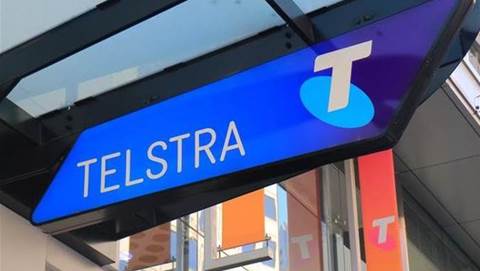The federal government needs to make urgent and drastic changes to the structure of the NBN or face having the bottom of the network cannibalised by mobile services, according to telco industry experts.
Growth in both mobile and fixed commercial wireless networks, which can easily service those with smaller consumption demands, poses a huge challenge for the NBN.
NBN Co faces losing up to 20 percent of its user base, experts say, with consumers choosing to whack a few extra dollars onto their mobile plan for a bigger data allowance, rather than signing up for an NBN broadband connection.
Serial telco enterpreneur Bevan Slattery has argued since 2010 that the NBN should never have been structured in pursuit of a commercial return, and needs a dramatic restructure to meet its stated policy goals of fast and affordable broadband for all.
“I said in 2010, 2012, and 2015, and I’ll say it again in 2017. The NBN will never make a commercial return,” Slattery told the CommsDay Summit in Sydney today.
“This is the single fundamental problem that is screwing up broadband in this country.
“It was a stupid policy dreamt up on a plane between Sydney and Canberra between the prime minister and [communications] minister of the day, and we’re still living with the consequences of those stupid decisions.
“We have a business plan … that is not conducive to people consuming, it’s all about throttling speeds.”
He claimed the government’s inaction on the issue over the past seven years had resulted in Australia falling significantly behind other developed nations in terms of broadband speeds [pdf] while the threat of mobile to the NBN grows greater.
Investments in mobile networks by Telstra, Optus, and Vodafone in recent years have resulted in Australia rising to lead APAC in terms of mobile speeds, according to Akamai.
“NBN Co will be cannibalised out of the bottom 20 percent of its customer base. Because people have to have a mobile phone, they don’t have to have fixed line,” Slattery said.
“The more people move from ADSL or cable onto the NBN and find that it sucks ... that will distort the market.”
New Street Research telco analyst Ian Martin said the NBN was never properly evaluated before the government committed cash to the project, even with the wireless issue clearly on the horizon.
“It’s a reality that we’re seeing an increase in wireless networks, and they’re more and more capable of handling volumes of data. The bottom end of the market only download tens of gigabytes a month if that, so there’s a large part of the market that can be served by wireless,” Martin told iTnews.
“The growth in wireless is going to be an issue for NBN Co meeting its corporate plan targets.”
Update 12/4: Low-cost operator TPG on Wednesday announced plans to build a $2 billion mobile network and become Australia's fourth-largest mobile carrier, in what could greatly exacerbate the threat to NBN Co's user base on lower-value services.
NBN Co needs to offer a sub-$20 plan - “not something like a 4/1Mbps or this 12/1Mbps crap: that’s not broadband, that’s ADSL, that’s narrowband” - that can lure users with tight budgets away from mobile and onto the NBN, according to Slattery.
“You can’t do that when you’re trying to get an economic return. But if you don’t, mobile will absolutely eat the bottom 10-20 percent of the NBN,” he said.
Slattery also argued the contentious CVC charge needs to be reduced by as much as 70 percent, and as much as $30 billion of NBN expenditure needs to be written off.
“We’ve got to write down $20 - $30 billion of the NBN investment and call it a social infrastructure investment. No different to a road, no different to a bridge, whatever the hell you don’t get a commercial return on," Slattery said.
Martin agrees: his modelling says the government will spend $60 billion on the NBN, of which half will be written off.
Slattery suggested the writedown could be somewhat offset by adding an NBN dividend (of say $40 annually for five years) to each user’s bill, which he said consumers would be fine with because they would be seeing faster speeds.
ACCC has ‘let the country down’
Slattery also delivered a stinging slap to the nation’s telco regulator for what he sees as its failure to prevent distortion of the market.
“You’ve absolutely let this country down, you’ve absolutely forgotten the consumer, you’ve effectively rubberstamped us into this,” he said.
“The ACCC has effectively been hand in hand in making sure Australia is now 50th in terms of broadband speeds around the world. Congratulations.”
He called on the regulator to focus on consumer interest rather than “appeasing political markets”.
The telco industry did not escape criticism either: it has been similarly “complicit” in failing to address the structural issues by “sitting down and doing nothing about this”, according to Slattery.
“We’ve completely failed both from a technology standpoint and from a consumer standpoint,” he said.
“As an industry we’ve got to make sure that we actually get this message to government.
"This is not a battle between FTTN and FTTP, that battle has been and gone, get over it. We as an industry need to be one voice and say our KPI is not to be 50th in the world next year in terms of broadband speeds, it’s to be 25th, and then in the top 15 or 10, and improve.
“To do that we’ve got to write that money off and drop broadband pricing and increase speeds for everyone. That’s it in a nutshell.”





















